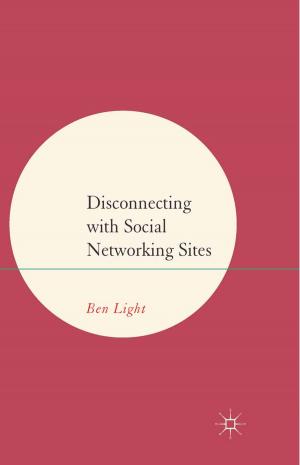The Irish Welfare State in the Twenty-First Century
Challenges and Change
Nonfiction, Social & Cultural Studies, Political Science, Government, Social Policy, Business & Finance, Economics, Theory of Economics| Author: | ISBN: | 9781137571380 | |
| Publisher: | Palgrave Macmillan UK | Publication: | October 4, 2016 |
| Imprint: | Palgrave Macmillan | Language: | English |
| Author: | |
| ISBN: | 9781137571380 |
| Publisher: | Palgrave Macmillan UK |
| Publication: | October 4, 2016 |
| Imprint: | Palgrave Macmillan |
| Language: | English |
This book provides a critical and theoretically-informed assessment of the nature and types of structural change occurring in the Irish welfare state in the context of the 2008 economic crisis. Its overarching framework for conceptualising and analysing welfare state change and its political, economic and social implications is based around four crucial questions, namely what welfare is for, who delivers welfare, who pays for welfare, and who benefits. Over the course of ten chapters, the authors examine the answers as they relate to social protection, labour market activation, pensions, finance, water, early child education and care, health, housing and corporate welfare. They also innovatively address the impact of crisis on the welfare state in Northern Ireland. The result is to isolate key drivers of structural welfare reform, and assess how globalisation, financialisation, neo-liberalisation, privatisation, marketisation and new public management have deepened and diversified their impact on the post-crisis Irish welfare state. This in-depth analysis will appeal to sociologists, economists, political scientists and welfare state practitioners interested in the Irish welfare state and more generally in the analysis of welfare state change.
This book provides a critical and theoretically-informed assessment of the nature and types of structural change occurring in the Irish welfare state in the context of the 2008 economic crisis. Its overarching framework for conceptualising and analysing welfare state change and its political, economic and social implications is based around four crucial questions, namely what welfare is for, who delivers welfare, who pays for welfare, and who benefits. Over the course of ten chapters, the authors examine the answers as they relate to social protection, labour market activation, pensions, finance, water, early child education and care, health, housing and corporate welfare. They also innovatively address the impact of crisis on the welfare state in Northern Ireland. The result is to isolate key drivers of structural welfare reform, and assess how globalisation, financialisation, neo-liberalisation, privatisation, marketisation and new public management have deepened and diversified their impact on the post-crisis Irish welfare state. This in-depth analysis will appeal to sociologists, economists, political scientists and welfare state practitioners interested in the Irish welfare state and more generally in the analysis of welfare state change.















